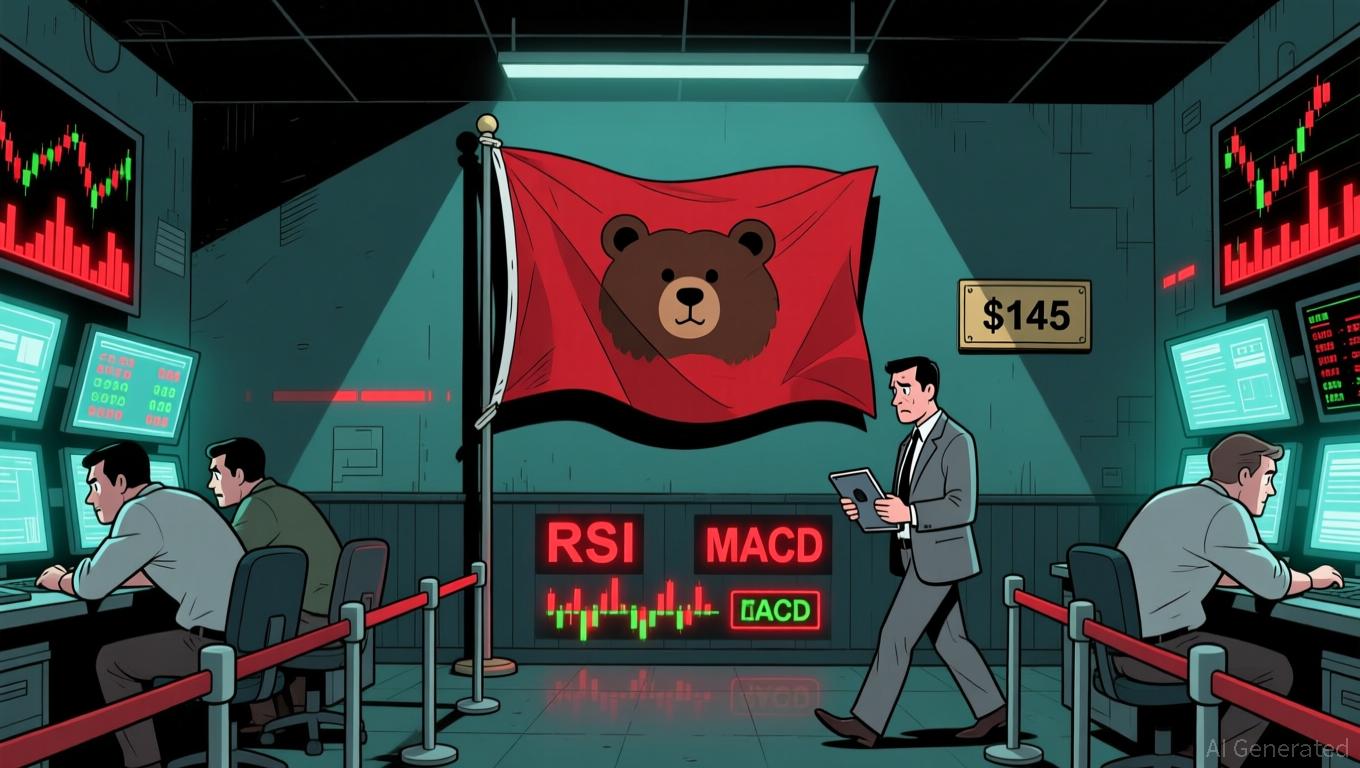Japan Equips Crypto Exchanges with Conventional Financial Protections
- Japan's FSA mandates crypto exchanges to hold liability reserves from 2026, aligning with traditional financial safeguards after major exchange collapses. - Reserve requirements will be volume-based and incident-adjusted, allowing insurance to offset costs, ensuring immediate user compensation without bailouts. - The reform reclassifies crypto as financial instruments under strict oversight, including audit enhancements and insider-trading bans, mirroring securities firm standards. - Larger exchanges lik
The Financial Services Agency (FSA) of Japan has unveiled a major regulatory reform that will require all authorized cryptocurrency exchanges to hold liability reserves, aiming to protect users from losses due to hacks, fraud, or operational mishaps. This new regulation, scheduled for introduction during the 2026 regular parliamentary session,
Reserve levels will be determined by each platform’s trading activity and history of incidents, with approved insurance policies permitted to offset some of the required reserves. This strategy is designed to guarantee swift compensation for affected users without depending on government bailouts,
This regulatory update is part of a wider legislative initiative that will redefine cryptocurrencies as financial instruments under the Financial Instruments and Exchange Act.

Regulators emphasize that this new rule addresses significant shortcomings in the current system. Although user asset cold storage has been mandated, it has not been enough to prevent major losses,
Japan’s initiative further cements its status as a highly regulated yet innovation-supportive crypto hub. By integrating capital reserves, insurance, and enhanced oversight, the FSA seeks to create a robust environment for both investors and businesses. As the 2026 legislative session nears, industry stakeholders are watching closely, especially regarding how reserve requirements and insurance standards will be uniformly applied across the sector.
Disclaimer: The content of this article solely reflects the author's opinion and does not represent the platform in any capacity. This article is not intended to serve as a reference for making investment decisions.
You may also like
Solana Update: Bearish Pattern and Weakening Support Point to Solana's $99 Challenge
- Solana's SOL price faces bearish pressure, with technical indicators and on-chain metrics suggesting a potential drop to $99 if key support levels fail. - ETF inflows remain uneven, with Bitwise's BSOL ETF dominating 89% of assets but recent outflows signaling institutional caution amid weak retail demand. - The Upbit hot wallet breach triggered liquidity disruptions, while Nansen data shows 20% monthly declines in TVL, active addresses, and network fees. - Technical analysis highlights a bear flag patte

Crypto Market Caught Between Surrender and Careful Buying as Underlying Fear Dynamics Change
- Crypto Fear & Greed Index rose to 19/100 from 15/100, remaining in "extreme fear" despite broader equity market pessimism. - Structural downturn driven by leverage, liquidations, and retail capitulation, with social media bullish sentiment at 2-year lows. - Unverified $15B Bitcoin breach and institutional moves (Grayscale ETF, Bybit India) highlight safety concerns and long-term confidence. - KAS, FLR, SKY show modest gains amid "altcoin season," but isolated rallies contrast with fragile market-wide cau
Solana News Update: Changing Risk Preferences Lead to Outflows from Solana ETFs
- Solana ETFs recorded first outflows since launch, with 21Shares TSOL losing $34.37M in single-day withdrawals. - Price held near $141 despite bearish technical indicators and 20% drop in network TVL to $9.1B. - Institutional holdings remain strong at 6.83M tokens ($964M), but Upbit hack amplified short-term volatility. - Market recovery hinges on Fed's December rate decision and Solana's ability to stabilize key metrics.
Bitcoin News Update: Optimistic Long Positions and Pessimistic Shorts Clash, Intensifying Cryptocurrency Market Fluctuations
- Hyperwhale shorted 1,000 BTC at $89,765 with 3x leverage, earning $10.6M but facing $1.16M losses as BTC trades at $106,443. - Aggressive bullish bets on Hyperliquid include a 20x $30M BTC long and $92.87M in leveraged longs, contrasting with $343.89M in 24-hour short liquidations. - BTC's RSI at 66 and 15/1 buy/sell signals reinforce short-term bullishness, while $5M POPCAT manipulation risks highlight exchange vulnerabilities. - LeverageShares' 3x BTC/ETH ETFs and compounding risks in products like UDO
